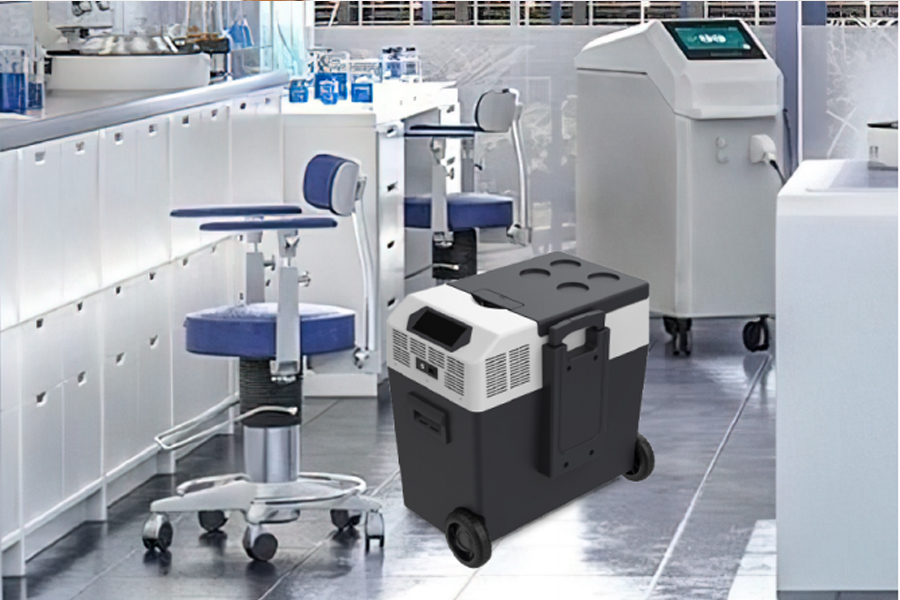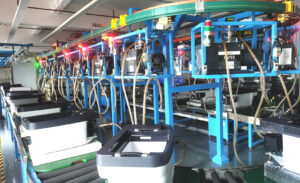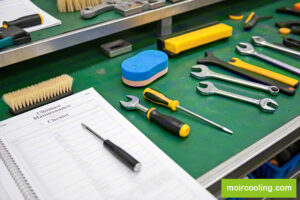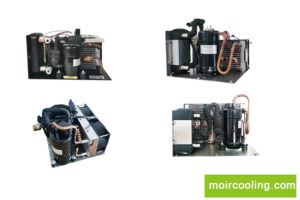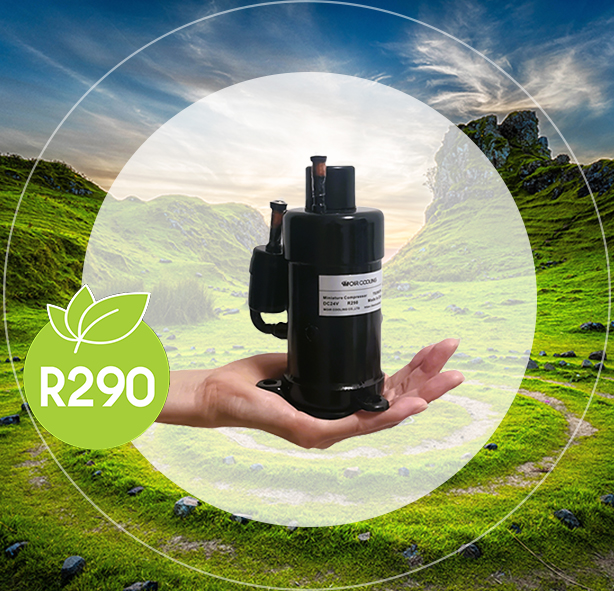Introduction
In today’s fast-paced world, portable freezer units have evolved from a niche convenience into a crucial tool across industries. Whether transporting vaccines in healthcare, preserving seafood in transit, or keeping drinks chilled on off-grid adventures, optimized cooling performance is essential. As mobile operations grow and cold storage logistics expand into last-mile delivery and outdoor applications, these devices have become vital to preserving product integrity.
Optimizing the cooling performance of these freezer boxes is key to staying ahead in markets where cold storage logistics can make or break operations. This guide explores the critical design factors that influence portable freezer unit performance—and how companies like MOIR are pushing innovation in the space.
The Rising Demand for Portable Freezer Units in Diverse Industries
From healthcare cold chains to outdoor leisure and logistics, industries are increasingly turning to compact, reliable freezer solutions. The demand is largely driven by the need for precise temperature control in mobile environments, a growing e-commerce cold chain fulfillment sector, and the rise of custom freezer box applications. Companies require units that can function under extreme conditions without sacrificing cooling efficiency.
As food delivery services, vaccine transportation, and field research operations grow globally, the demand for robust cold storage logistics infrastructure has never been higher. Portable freezer units enable temperature-sensitive goods to reach their destinations intact, making them indispensable in last-mile delivery and mobile fieldwork. Their flexibility also supports decentralized healthcare, helping mobile clinics and vaccination teams maintain cold chains without stationary infrastructure.
This growing interest has pushed manufacturers to innovate rapidly—balancing portability, power, and performance. From modular power inputs to smart control systems, every design element now contributes to achieving consistent, energy-efficient cooling under varying real-world conditions.

Why Cooling Performance Matters: Beyond Just Cold Storage
High-performance cooling isn’t just about getting cold—it’s about staying cold consistently and efficiently. In medical transport, for instance, a slight fluctuation can spoil sensitive vaccines. In food logistics, inadequate cooling can lead to spoilage, safety risks, and brand damage. For outdoor users, it’s about dependability when power sources are limited. The best portable freezer units go beyond cooling—they deliver cold storage logistics reliability.
Efficient cooling ensures product safety and longevity across all stages of the supply chain. It minimizes waste, reduces operational costs, and enhances brand reputation by maintaining consistent quality. Especially in the context of custom freezer box applications, poor performance can undermine the entire cold chain fulfillment process.
Moreover, cooling reliability is directly tied to energy consumption. A unit that can maintain its target temperature with minimal compressor activity not only saves power but also extends battery life and reduces carbon footprint. Performance isn’t just a technical metric—it’s a business-critical factor.
Understanding the Core Mechanics of Portable Freezer Units
Portable freezer units use compact compressor systems to provide active cooling. Unlike passive coolers, which rely on ice or thermal mass, compressor-based units actively pump refrigerant to remove heat. Components include compressors, condensers, evaporators, and insulated compartments. The efficiency of each part, as well as how they work together, determines overall performance.
Understanding these mechanics allows designers to identify areas for optimization. Compressor types (rotary, reciprocating), refrigerant choices (R134a, R290), and condenser configurations all impact cooling speed and power usage. Proper integration ensures minimal temperature fluctuation and optimal energy use.
Another key consideration is the user interface integration within these mechanical systems. How easily users can adjust settings, monitor temperatures, and diagnose issues affects overall user experience. Well-designed systems not only perform well internally but also communicate performance clearly and intuitively.
MOIR’s Portable Mobile Freezer Boxes

MOIR’s portable mobile freezer boxes are engineered for demanding, professional applications. Designed for flexibility across healthcare, food transportation, and outdoor recreation markets, these freezer boxes combine rapid cooling, high insulation value, and intuitive controls. With models available in 25L, 35L, 45L sizes, even up to 150L sizes, they cater to different storage capacities without compromising mobility or efficiency. Each unit offers an adjustable temperature range from -22°C to 10°C, supporting both freezing and refrigeration functions.
What sets MOIR apart is its integration of compressor-based cooling systems in a compact form factor. By employing high-efficiency compressors and enhanced thermal insulation, these units deliver consistent performance—even in ambient temperatures up to 43°C. The aluminum interior enhances thermal conductivity, speeding up cooling times and improving energy efficiency. Dual DC/AC power compatibility, as well as solar panel support, make them adaptable for use in remote or off-grid scenarios.
Additionally, MOIR focuses on usability and durability. The freezer boxes feature a user-friendly LCD control panel, allowing precise temperature adjustments and mode switching between ECO and MAX settings. The injection-molded body, reinforced corners, and thick foam insulation ensure that the units withstand rough handling without compromising performance. These rugged yet intelligent design features make MOIR a preferred choice for cold chain logistics, custom freezer box applications, and reliable field use.
How Compressor Technology Impacts Cooling Efficiency
The heart of every MOIR freezer box is its rotary or reciprocating mini compressor. Compressor technology directly influences cooling time, temperature accuracy, and energy efficiency. High-performance compressors provide rapid cooling, even in high ambient conditions, while maintaining energy consumption within optimized limits. In logistics and healthcare, every degree—and every watt—counts.
Compressors with variable speed settings allow for more precise control of cooling cycles. They can ramp up for rapid cooling and then dial back to maintain temperature with less energy. This not only improves efficiency but also reduces wear and tear on the components, extending the lifespan of the unit.
The integration of advanced compressor control algorithms ensures that the system responds to load changes effectively. This is particularly important during transport when lid openings or ambient shifts occur. An intelligent compressor system helps maintain temperature integrity across dynamic scenarios.

The Key Factors for Optimizing Cooling Performance
Compact Design, Powerful Output: The Balance of Size and Performance
One of the biggest design challenges is fitting industrial-level cooling power into a small, lightweight frame. Achieving this requires optimizing the internal layout and heat exchange components for maximum efficiency.
Our injection-molded casing, integrated with thick foam insulation and aluminum lining, ensures excellent thermal performance without making the unit bulky. This balance between size and cooling output is essential for portability-focused industries.
Insulation Innovations: Materials That Enhance Cooling Retention
A freezer’s cooling ability is only as strong as its insulation. Modern portable units are leveraging high-density PU foam and vacuum-insulated panels to enhance thermal retention. MOIR units use thick injection-molded walls to minimize thermal bridges and prevent outside heat from penetrating.
Better insulation means longer cooling retention, less compressor cycling, and lower energy consumption—crucial for long-haul cold chain logistics.
Aluminum Interior vs Plastic: Which Boosts Thermal Conductivity?
The choice of internal material significantly impacts thermal efficiency. Aluminum interiors, featured in MOIR’s units, offer superior thermal conductivity compared to plastic, allowing faster and more uniform cooling.
While plastic is lighter and cheaper, it lacks the quick response and cooling depth provided by aluminum. For demanding applications, aluminum-lined chambers are the superior choice.
Temperature Range Optimization: From -22°C to 10°C Explained
The versatility of temperature control is vital. MOIR’s portable freezer units operate in a wide range of -22°C to 10°C, making them suitable for deep freezing pharmaceuticals, storing chilled beverages, or keeping food fresh.
This flexibility allows a single unit to serve diverse applications—from emergency vaccine transport to gourmet outdoor picnics.

How Foam Thickness and Injection Molding Influence Thermal Efficiency
Thicker insulation equals better temperature retention. Our injection molding process allows for precise wall thickness and uniform insulation distribution. This not only enhances performance but also reduces condensation and external wall heating.
Such design integrity is especially important for cold chain fulfillment where every degree of retention counts during transportation delays.
Sustainability Considerations in Design: Eco-Friendly Cooling Practices
Eco-conscious design choices—like using R290 refrigerant, recyclable materials, and low-energy compressor systems—help reduce the environmental footprint of portable freezer units.
MOIR continues to explore sustainable innovations without compromising performance, making green cooling a viable solution for the future of logistics and outdoor use.
Common Cooling Performance Pitfalls and How to Avoid Them
Design mistakes like undersized compressors, poor airflow design, or weak insulation can all compromise cooling performance. Common pitfalls include ignoring ambient temperature effects, overloading the chamber, or using non-conductive interior materials.
Avoiding these mistakes requires a holistic approach—from component selection to user education.
Conclusion: Designing Portable Freezers That Deliver Peak Performance Every Time
Optimizing cooling performance in portable freezer unit designs is not a one-dimensional challenge—it requires a harmonized approach involving mechanical efficiency, material science, user interface, and power versatility. Each design decision directly impacts not just the technical performance but also real-world usability and reliability.
MOIR’s portable freezer boxes demonstrate how a thoughtful, engineering-driven approach can address the evolving demands of cold chain logistics, outdoor use, and professional transport. By focusing on efficient compressors, smart control systems, advanced insulation, and multi-source power input, these units offer more than cold—they offer confidence.
As industries continue to embrace mobility and decentralization, high-performance portable cooling solutions like those from MOIR will remain essential. Their combination of adaptability, reliability, and efficiency makes them a strategic asset in maintaining cold chain integrity across diverse applications.
Looking for a custom freezer box built for your application?
Let MOIR help you design the perfect portable cooling solution for your needs.

